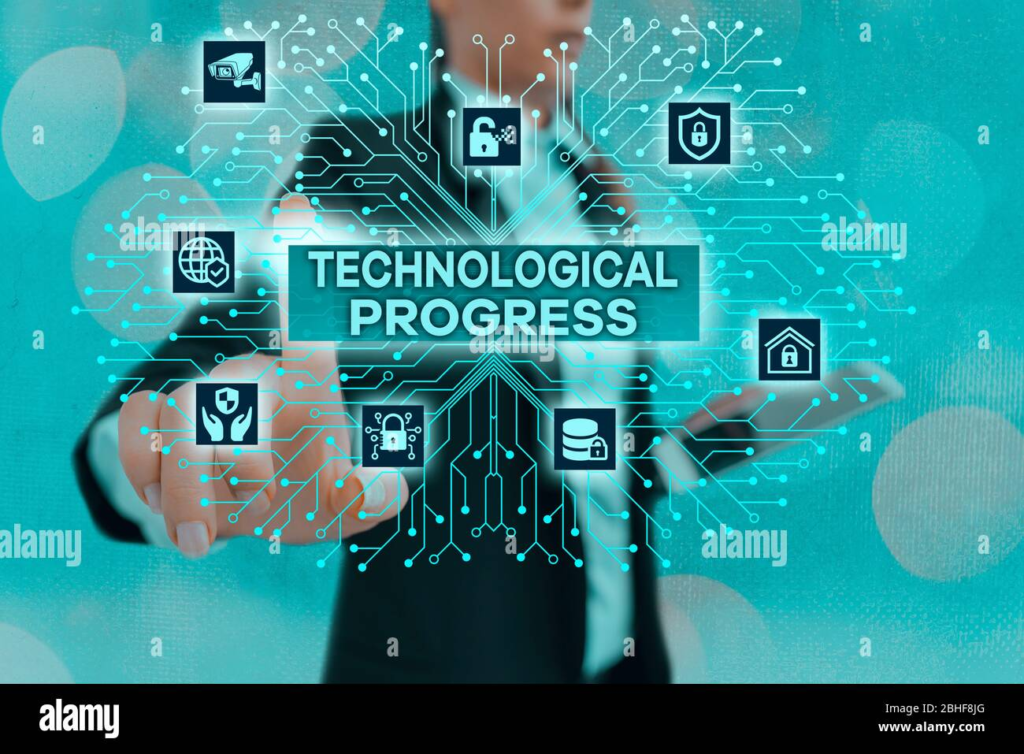The Development and Importance of Current Computers

The Development and Importance of Current Computers. With technology developing so quickly these days, contemporary computers are an essential part of our everyday life. Through their ability to simplify daily tasks and enable complicated scientific inquiry, computers have had a profound impact on how we engage with the outside world. This article explores the distinguishing features, technological developments, and wide range of uses of modern computers, offering a thorough grasp of their significance in contemporary culture.
Background Information in History
The first electrical digital computers were developed in the middle of the 20th century, marking the beginning of the computer era. Early computers with limited capabilities, such as the UNIVAC and ENIAC, were bulky and costly. But the late 1940s saw the advent of the transistor, which was a game-changer that made computers more compact, effective, and reasonably priced. The 1960s saw the subsequent development of integrated circuits, which further transformed computing and helped to usher in the era of microprocessors in the 1970s.
Technological Progress

There have been several technological developments in modern computers that set them apart from earlier models. These developments have improved efficiency and performance while also broadening the range of fields in which computers can be used.
- Processing Power
- Central Processing Units (CPUs): The heart of any computer, the CPU, has seen exponential growth in processing power. Modern CPUs feature multiple cores, hyper-threading, and advanced architectures that allow for simultaneous execution of multiple tasks, significantly boosting overall performance.
- Graphics Processing Units (GPUs): Initially designed for rendering graphics, GPUs have evolved into powerful parallel processors capable of handling complex computations. This has made them essential for applications such as artificial intelligence, machine learning, and scientific simulations.
2. Storage Solutions
- Solid State Drives (SSDs): Replacing traditional hard disk drives (HDDs), SSDs offer faster data access speeds, lower latency, and greater reliability. The advent of NVMe (Non-Volatile Memory Express) SSDs has further pushed the boundaries of storage performance.
- Cloud Storage: The rise of cloud computing has transformed how data is stored and accessed. Cloud storage solutions provide scalable, on-demand storage capabilities, enabling seamless data access from anywhere in the world.
- Connectivity
- High-Speed Internet: The proliferation of high-speed internet connectivity has been a game-changer for modern computing. Technologies such as fiber optics and 5G have enabled faster data transfer rates, reduced latency, and improved overall connectivity.
- Internet of Things (IoT): The IoT ecosystem, comprising interconnected devices and sensors, has expanded the capabilities of modern computers. From smart homes to industrial automation, IoT applications are reshaping various sectors by enabling real-time data collection and analysis.
- User Interfaces
- Graphical User Interfaces (GUIs): The development of intuitive GUIs has made computers more accessible to a broader audience. Modern operating systems feature user-friendly interfaces with advanced functionalities, enhancing the overall user experience.
- Voice and Gesture Recognition: Innovations in natural language processing and computer vision have led to the integration of voice and gesture recognition technologies. Virtual assistants like Siri, Alexa, and Google Assistant exemplify the seamless interaction between humans and computers.
Applications of Modern Computers

The versatility of modern computers is evident in their wide range of applications across different domains. These applications highlight the transformative impact of computing technology on various aspects of life. The Development and Importance of Current Computers.
- Scientific Research and Education
- Data Analysis and Simulation: High-performance computing (HPC) systems enable researchers to analyze massive datasets and run complex simulations. Fields such as genomics, climate science, and astrophysics rely heavily on computational power to drive discoveries.
- E-Learning: The integration of computers in education has revolutionized the learning experience. E-learning platforms, virtual classrooms, and educational software provide interactive and personalized learning opportunities for students worldwide.
- Healthcare
- Medical Imaging and Diagnostics: Advanced imaging technologies, powered by sophisticated computing algorithms, aid in the diagnosis and treatment of medical conditions. Computed tomography (CT) scans, magnetic resonance imaging (MRI), and ultrasound rely on computers for image processing and analysis.
- Telemedicine: The rise of telemedicine has improved access to healthcare services. Video consultations, remote monitoring, and digital health records enable efficient and effective patient care, especially in remote areas.
- Business and Finance
- Automation and AI: Businesses leverage automation and artificial intelligence to streamline operations, enhance productivity, and make data-driven decisions. AI-powered chatbots, predictive analytics, and robotic process automation (RPA) are some examples of how computing technology is transforming the business landscape.
- Blockchain and Cryptocurrencies: The advent of blockchain technology and cryptocurrencies has introduced new paradigms in finance. Blockchain provides a secure and transparent way to conduct transactions, while cryptocurrencies offer decentralized financial systems.
- Entertainment and Media
- Digital Content Creation: The capabilities of modern computers have revolutionized content creation. High-definition video editing, graphic design, and 3D animation are now more accessible, enabling creators to produce high-quality content.
- Gaming: The gaming industry has witnessed tremendous growth, driven by advancements in computing technology. Powerful GPUs, realistic graphics, and immersive virtual reality (VR) experiences have redefined the gaming experience for enthusiasts.
- Environmental Monitoring and Sustainability
- Climate Modeling: Modern computers play a crucial role in climate modeling and environmental monitoring. By analyzing vast amounts of data, scientists can predict climate patterns, assess environmental impacts, and develop sustainable solutions.
- Smart Grids: The implementation of smart grids, powered by IoT and computing technologies, optimizes energy distribution and consumption. This contributes to more efficient and sustainable energy management.
Future Trends of modern computer

The future of modern computers holds exciting possibilities as technology continues to advance. Some emerging trends that are expected to shape the future of computing include:
- Quantum Computing: Quantum computers, leveraging the principles of quantum mechanics, promise to solve problems that are currently intractable for classical computers. This breakthrough has the potential to revolutionize fields such as cryptography, materials science, and optimization.
- Edge Computing: As the number of IoT devices grows, edge computing aims to process data closer to the source, reducing latency and bandwidth usage. This approach enhances real-time decision-making capabilities and improves overall system efficiency.
- Artificial Intelligence and Machine Learning: AI and machine learning will continue to drive innovation across various sectors. From autonomous vehicles to personalized medicine, the integration of AI technologies will create new opportunities and challenges.
- Sustainable Computing: With growing concerns about environmental sustainability, there is a focus on developing energy-efficient computing technologies. Green computing initiatives aim to reduce the environmental impact of data centers, electronic waste, and overall energy consumption.
In summary
From their humble beginnings, modern computers have advanced dramatically and are now essential instruments in almost every area of life. The capabilities of computers have increased due to ongoing improvements in processor speed, storage options, networking, and user interfaces. Their wide range of uses in commerce, entertainment, healthcare, scientific research, and environmental monitoring highlight how profoundly they have changed society. Future developments like edge computing, quantum computing, and artificial intelligence (AI) have the potential to completely transform the computing industry, spur innovation, and solve major global issues. The development of contemporary computers is a monument to human inventiveness and the unwavering quest of technological advancement.




